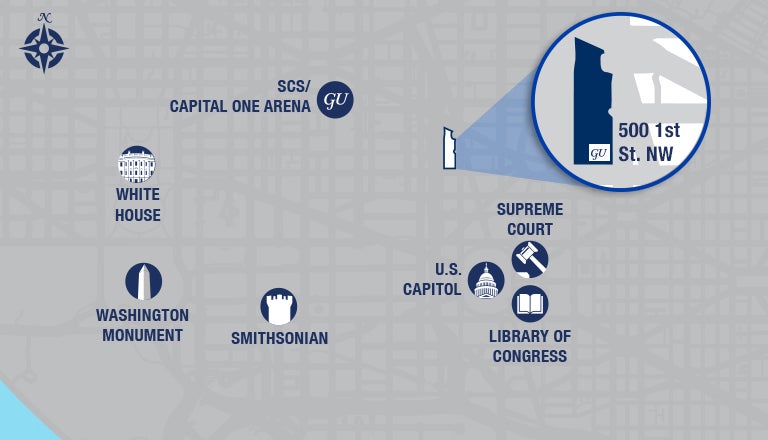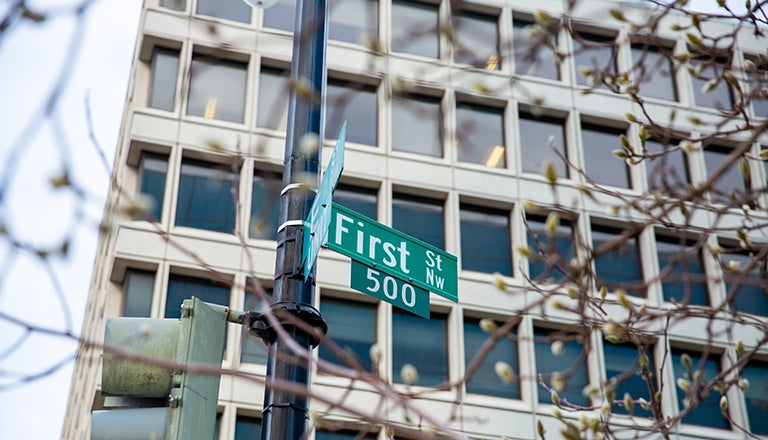A newly acquired property – 500 First Street NW in Washington, DC – will help Georgetown expand its presence on Capitol Hill, bring new opportunities for students, faculty and staff across its campuses and complete an entire city block of university properties.
The newly acquired property builds upon the existing footprint of Georgetown University Law Center, which is within walking distance of the U.S. Capitol and the U. S. Supreme Court. It also is located less than a mile from the university’s School of Continuing Studies.
The 130,000-square-foot building will provide space for a mix of classrooms, offices and collaboration areas.
Many of Georgetown Law’s centers and institutes and some McCourt School of Public Policy centers and institutes will relocate to 500 First Street NW, creating new opportunities for collaboration on innovative policy solutions across fields including health, climate, technology, education and human rights.

Addressing Global Issues
“Georgetown University Law Center is a global leader in legal education and the preeminent U.S. law school based in the nation’s capital,” says Law Center Dean William M. Treanor. “Over the last decade, we have seen unprecedented growth in our experiential offerings for students across our clinical, externship, practicum and simulation programs, all of which are deeply woven into the Washington, DC, landscape.”
“Bringing together our centers and institutes in one location will help us prepare the next generation of leaders, by allowing Georgetown students to work across disciplines with top experts addressing critical global issues today,” he adds.
Policy and Technology
The building will house an unprecedented combination of Georgetown Law activities as well as those of the campus at 37th and O Street NW.
“This is an exceptional chance to deepen ties to the communities we serve, to create opportunities for undergraduates, graduate researchers, faculty and staff alike, and,most importantly, to do our best and most important work at the heart of the nation’s capitol and as a major convening point for world policy,” Provost Robert Groves says.
The recently created Capitol Applied Learning Lab(the CALL) also will have space in the building, as will the new Center for Security and Emerging Technology (CSET).
The CALL offers undergraduates who wish to deepen their experience in policy and public service a chance to engage in a new living and learning community in which they intern during the day, take classes in the late afternoon and explore issues related to living and working in the nation’s capital.
CSET combines world-class expertise in artificial intelligence and advanced computing with Georgetown’s extensive networks in security policy to produce analyses of the national security implications of emerging technologies.
Financial Support
The building is supported through the single largest gift in the Law Center’s history – $10.5 million from alumnus Scott K. Ginsburg (L’78). It is expected that Ginsburg’s gift will be a catalyst for additional philanthropy for the building.
Georgetown is also focused on investing in its existing physical infrastructure.
The university’s board of directors recently approved a five-year, $75 million deferred maintenance plan that triples the budget for such projects in the first year and increases the annual budget by 500 percent in year five.
The deferred maintenance plan is designed to improve the conditions of Georgetown’s existing infrastructure, including a focus on student residences, through a $50 million one-time addition and a phased increase in annual spending from $5 to $25 million over the next five years.

